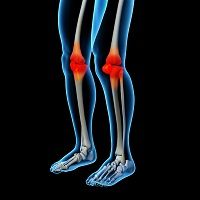Article
Study: Glucosamine and Chondroitin Supplements Show No Arthritic Benefit Over Placebo
Author(s):
Popularly sold to improve joint health, a recent Spanish study found the benefits of CS+GS supplements on par with (and in some cases outperformed by) placebos.

Glucosamine sulfate (GS) and chondroitin sulfate (CS), often sold together in popular supplements that claim to support joint health, fared no better than placebo in a recent double-blind study. Researchers in Spain gathered 164 patients with knee osteoarthritis (KOA), and they were randomly given either a CS+GS supplement or a placebo. In some study populations, the placebo actually performed better.
"This is the first randomized controlled trial sponsored by a pharmaceutical company to evaluate the efficacy of a combination of CS and GS and that included a Data and Safety Monitoring Board, or DSMB, composed of independent experts charged with ensuring participant safety and accurate, bias-free data,” says co-author Gabriel Herrero-Beaumont in an accompanying press release.
A previous study, the Glucosamine/Chondroitin Arthritis Intervention Trial (GAIT) conducted over years by the National Center for Complementary and Integrative Health (NCCAM) and the National Institute of Arthritis and Musculoskeletal and Skin Diseases, also produced mixed results for CS+GS. The study also compared celecoxib (brand name Celebrex), and after a two-year comparison, found “no treatment achieved a clinically important difference in WOMAC pain or function as compared with placebo.” WOMAC refers to the Western Ontario and McMaster Universities Arthritis Index, a commonly-used questionnaire for evaluating arthritic symptoms.
While no questions emerged as to the safety of CS+GS supplements, the studies maintained that “CS+GS failed to demonstrate superiority over placebo in reducing pain and function impairment in patients with symptomatic KOA at 6 months,” suggesting that “Further research may contribute to fully elucidate the suitability of CS+GS combination as therapy in OA.”
The study took place over the course of six months. Like GAIT, it involved daily dosages of 1500mg GS and 1200mg CS, levels comparable to those suggested in popular over-the-counter supplements like Osteo Bi-Flex.





